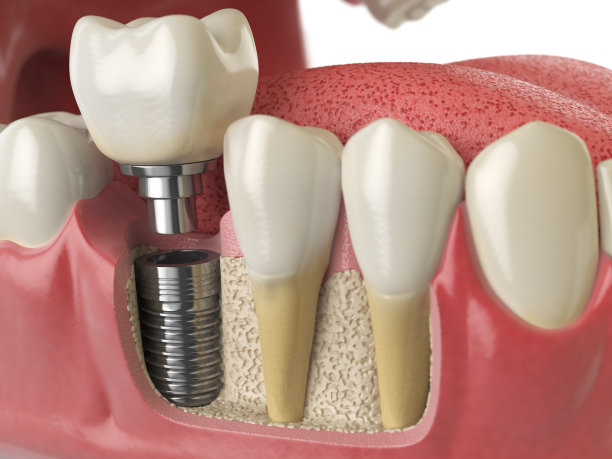Understanding Periodontal Disease Its Impacts Risk Factors and Effective Management Strategies for Optimal Oral Health
Summary: Periodontal disease, a prevalent oral health issue, affects millions worldwide, leading to significant consequences if left untreated. This article delves into the multifaceted impacts, risk factors, and effective management strategies associated with periodontal disease. By understanding the nature of this condition, individuals can better navigate their oral health. Through comprehensive insights, we aim to highlight the importance of proactive measures and informed choices in maintaining optimal oral health. The discussion will encompass clinical implications, behavioral and environmental risk factors, treatment options, and preventive strategies.
1. Understanding the Clinical Impacts of Periodontal Disease

Periodontal disease primarily affects the supporting structures of the teeth, including the gums and bone, leading to inflammation and potential tooth loss. The initial stage, known as gingivitis, is characterized by redness, swelling, and bleeding of the gums. If not effectively managed, it progresses to periodontitis, more severe inflammation where the bones supporting the teeth can be damaged.
The clinical manifestations can lead to significant health challenges beyond oral health. Individuals experiencing advanced periodontal disease may face difficulties in chewing and speaking, leading to nutritional deficiencies and a diminished quality of life. Moreover, severe forms can harbor systemic health risks, linking poor periodontal health to conditions such as cardiovascular disease, diabetes, and respiratory disorders.
Understanding these clinical impacts underscores the urgency of early detection and intervention. Regular dental check-ups are essential to monitor and manage periodontal health proactively, preventing the progression of the disease and safeguarding overall health.
2. Identifying Risk Factors for Periodontal Disease
Several risk factors contribute to the development and progression of periodontal disease. Firstly, systemic health conditions, such as diabetes, significantly elevate the risk. Diabetic individuals may experience impaired immune responses, making it challenging to combat the bacteria responsible for periodontal infections.
Another key risk factor is smoking, which has detrimental effects on oral health. Tobacco use impairs blood flow to the gums, diminishing their ability to heal and fight infections. Smokers are also less likely to respond well to treatment due to reduced immune function.
Additionally, genetic predisposition plays a role. Studies indicate that individuals with a family history of periodontal disease are more likely to develop it themselves. Other factors, including age, hormonal changes, stress, and poor oral hygiene practices, further compound the risk of developing periodontal issues.
3. Effective Management Strategies for Prevention
Managing periodontal disease necessitates a multifaceted approach, starting with personal oral hygiene practices. Regular brushing, ideally twice a day, and flossing are fundamental in reducing plaque build-up, which is crucial for preventing the onset of periodontal disease. Using an antimicrobial mouthwash can provide additional protection against harmful bacteria.
Professional dental cleanings, typically recommended every six months, are essential in removing tartar that regular brushing cannot. Dental professionals can also identify early signs of periodontal disease, allowing for timely intervention. For individuals diagnosed with periodontal issues, more frequent visits may be necessary to monitor and manage the condition effectively.
Furthermore, lifestyle modifications play a critical role in management. Quitting smoking, maintaining a balanced diet rich in nutrients, managing systemic health conditions, and reducing stress through relaxation techniques all contribute positively to periodontal health. Educating oneself about potential risk factors and implementing preventive measures can significantly impact overall oral health.
4. The Role of Regular Dental Visits in Oral Health
Regular dental visits are crucial for maintaining optimal oral health and preventing periodontal disease. Dentists are trained to recognize early signs of gum disease that patients might overlook. These visits typically include comprehensive examinations and professional cleanings, helping to keep the gums healthy and inflammation at bay.
In addition to professional cleanings, dentists can provide personalized advice on improving home care routines. They can recommend specific products tailored to individual needs, such as special toothbrushes or adjunctive tools to enhance oral hygiene practices.
A proactive approach to dental health, including addressing any concerns promptly and adhering to the recommended visit schedule, establishes a solid foundation for preventing periodontal disease. Regular check-ups not only protect oral health but can also lead to the early detection of systemic health issues associated with periodontal disease.
Summary:
In summary, periodontal disease presents significant clinical impacts and is influenced by various risk factors that necessitate comprehensive management strategies. Understanding the importance of maintaining oral hygiene, recognizing potential health risks, and scheduling regular dental visits are pivotal in preventing this common yet serious disease.
This article is compiled by Vickong Dental and the content is for reference only.



